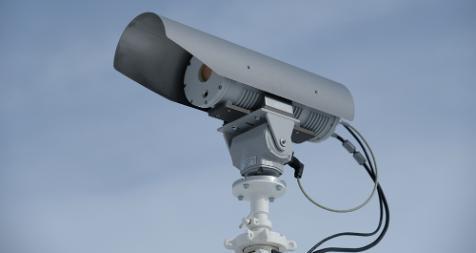An interview with QLM's Xiao Ai
Co-founder and CTO Xiao Ai talks about QTIC member QLM's work so far, and how it hopes to limit climate change with its Quantum Gas Lidar system.
Tell us about QLM and the work you’re doing
QLM stands for Quantum Light Metrology. Whilst at the University of Bristol, I invented a unique way to exploit the sensitive detection capabilities of quantum technology to tackle global warming. QLM was founded in 2017 and has since developed sensitive laser imaging systems for the continuous monitoring of greenhouse gas (GHG) leaks. Combining lidar technology, absorption spectroscopy and single-photon detection, QLM's Quantum Gas Lidar (QGL) system is one of the first commercialised quantum technologies in the world.

One of the most pressing applications right now is to detect methane leaks, which contribute significantly to industrial greenhouse gas emissions. Unburnt methane that escapes to the atmosphere is over 80 times worse than CO2 as a greenhouse gas, so fixing leaks in the extraction, transport and storage of natural gas is vital to reach net zero. Monitoring sewage treatment facilities and anaerobic digesters for methane leaks can also prevent major explosion risks.
Why is Bristol the right place for you to build QLM?
Bristol is a vibrant city with strong academic institutions. It also benefits from the close proximity of Bath and Cardiff, assisting in recruiting skilled scientists and engineers. Bristol has inherited a strong talent pool for high-value hardware development inherited from the aerospace industry, and as 30% of the city’s high-tech sector is from software, there is plenty of software talent as well. This makes it well-suited for our hardware-enabled analytics business model.
How have the Quantum Technology Enterprise Centre (QTEC) and QTIC supported you, and what have you most enjoyed about working here and with the University of Bristol?
The QTEC pre-incubation setup has proved very successful in nurturing several spinout companies, including ourselves, thanks to the business mentoring and acumen it provides complimenting the development of high technology. QTIC helps by providing startups access to labs and necessary test equipment in the early years.
What investment have you raised and what have you learnt from this process?
As technical co-founder I contribute less to fundraising activity, which is a full-time job on its own. We have raised three rounds of capital funding to a total of £15.1m, which included a Series A fundraise of £12m in 2022, and the learnings are that it always take longer than you think, preparation is important and you should start planning a funding raise a year ahead.
What’s next for QLM?
QLM's aim is to have a significant impact upon limiting climate change and supporting the journey to net zero. The only way to achieve this is to get many thousands of QGL systems manufactured and deployed every year. Whilst mass-manufacture and a rapid increase in volume is a challenge, we are also working on the next generations of technology, including faster, smaller, lighter mobile devices and expanding the number of gas species we can accurately monitor.
If you could offer one piece of advice to other founders, what would it be?
Common sense is invaluable. When things aren't working, take a step back and work out why. Choose good strategic partners who can see the value in your offering, and network to find expertise you need. Listen to the market and what they're telling you should be the priorities in product development. Above all, be flexible and adapt to changing circumstances.
